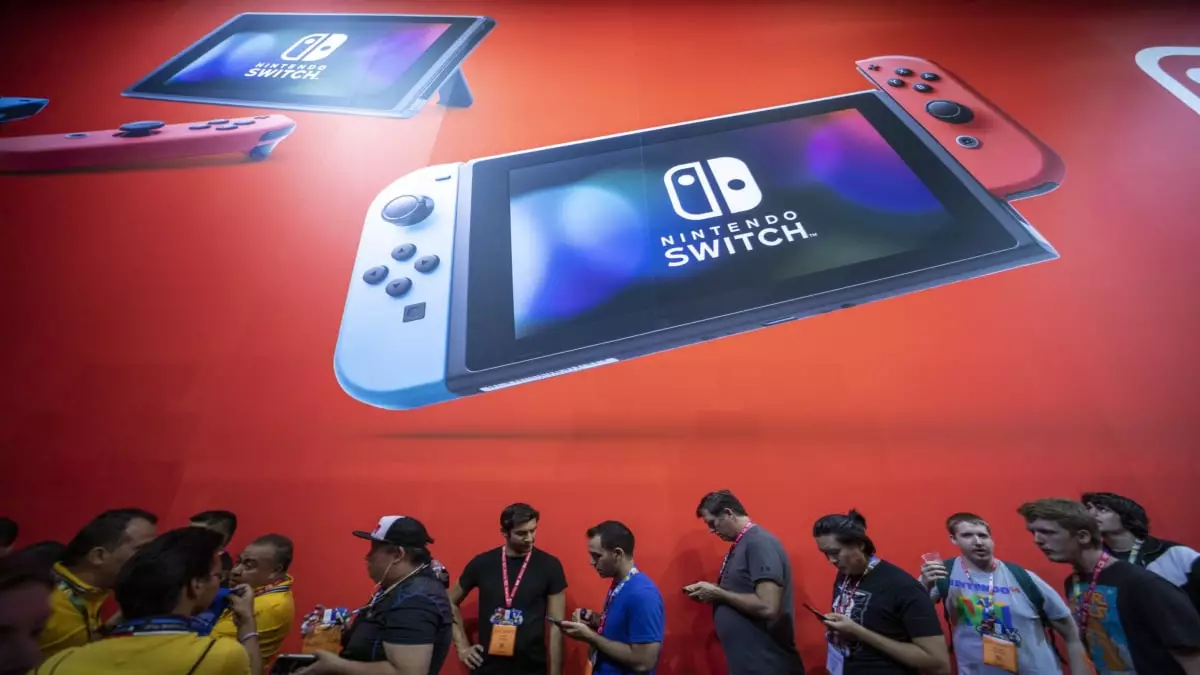In a significant announcement that has generated considerable excitement among gaming enthusiasts, Nintendo confirmed that its upcoming console, often referred to as the Nintendo Switch 2, will feature backward compatibility with existing Nintendo Switch software. This strategic move, revealed by Nintendo president Shuntaro Furukawa during a corporate briefing, addresses a critical concern for many gamers: the ability to continue enjoying their existing library of games. By ensuring that players can seamlessly transfer their game experiences to the new system, Nintendo is emphasizing its commitment to maintaining strong consumer loyalty, a factor deemed essential for the success of the upcoming device.
Backward compatibility is not just a nice feature; it reflects a broader understanding of consumer behavior. Gamers invest significant time and money into building their game collections. The assurance that these games will remain playable on new hardware is likely to be a major selling point and could mitigate potential consumer hesitance to upgrade. This approach stands in contrast to some competitors who have not prioritized backward compatibility, potentially alienating their existing user base.
In addition to supporting existing game titles, Nintendo has announced that its subscription service, Nintendo Switch Online, will also be available on the upcoming console. This service offers more than just online multiplayer; it includes cloud saves and access to a library of classic games, elements that enhance the overall gaming experience. By integrating this service into the Switch 2, Nintendo not only modernizes its offerings but also ensures consistent engagement with its users.
Furukawa emphasized the importance of nurturing long-term relationships with gamers, citing the over 100 million annual users of the Nintendo Switch. This acknowledgment indicates that Nintendo is not merely focused on short-term gains; it is intent on sustaining a community that values both current and future gaming experiences. The inclusion of Nintendo Switch Online is a strategic move designed to enhance the value proposition for potential Switch 2 owners, ensuring continued interest in their gaming ecosystem.
Financial Insights: Navigating Market Challenges
Despite the promising outlook for the next console generation, recent financial reports from Nintendo indicate challenges on the horizon. In the second quarter of fiscal year 2025, Nintendo experienced a year-over-year decline in both hardware and software sales. The sale of 4.72 million Switch units represented a 31% drop compared to the previous year’s figures. Such a decrease prompted the company to adjust its sales forecast for the fiscal year, dropping its estimate from 13.5 million to 12.5 million units.
This reduction in projected sales might seem alarming, but it can also be interpreted as a typical fluctuation within the gaming industry, especially as consumers await new hardware. The cumulative sale of 146 million Switch units to date is still an impressive figure, suggesting that while the current model may be experiencing a slowdown, the transition to the next generation could rekindle consumer interest and boost sales.
Furukawa also hinted at the importance of leveraging positive user experiences from the current Nintendo Switch to facilitate an inclusive transition to the Switch 2. While specific launch details remain under wraps, the expectation is that Nintendo will reveal more information about the successor before the fiscal year ends on March 31, 2025. This timeline creates an air of anticipation within the gaming community, as players are eager to learn what innovations and features the new console will bring to the table.
As the gaming landscape continues to evolve, Nintendo’s approach to backward compatibility and online services demonstrates a commitment not only to innovation but also to player retention. By focusing on consumer relationships and ensuring that gamers can carry their digital purchases into the next era, Nintendo is poised to enrich the gaming experience. By striking a balance between nostalgia for past gaming experiences and the excitement of new features, Nintendo appears ready to embark on an engaging new chapter that could redefine its legacy.
Ultimately, as the launch approaches, gamers and industry analysts alike will be watching closely to see how Nintendo navigates this transitional phase and what it means for the future of gaming.


Leave a Reply